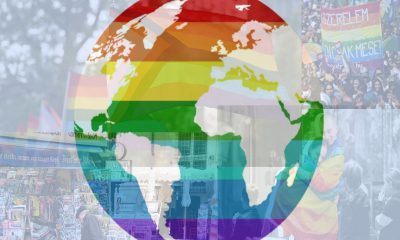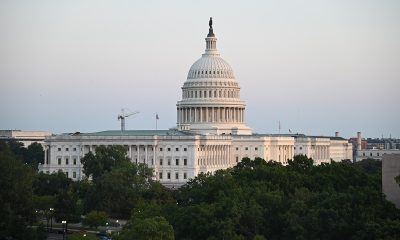News
President of Tonga LGBTQ rights group murdered
Polikalepo Kefu was killed near their home on May 1
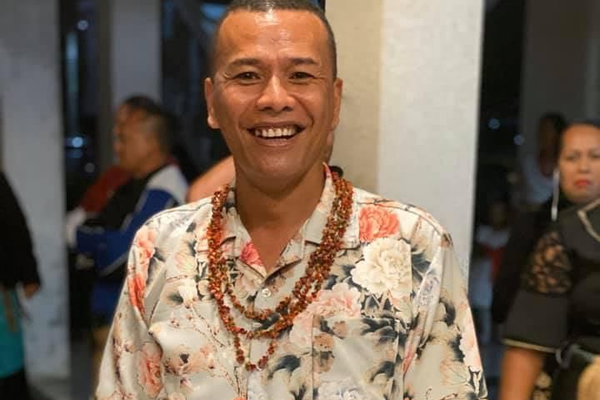
The president of an LGBTQ rights group in Tonga was murdered on May 1.
Media reports indicate Tonga Leitis Association President Polikalepo Kefu was killed near their home in Lapaha, a village on the island of Tongatapu on which the Tongan capital of Nuku’alofa is located. Deputy Tonga Police Commissioner Tevita Vailea on Monday in a statement said authorities have charged a 27-year-old man with murder.
“This is a tragic event, and our thoughts are with Mr. Kefu’s family, friends and wider community,” said Vailea.
The Tonga Leitis Association in a statement described Kefu as “a selfless humanitarian and a tireless advocate for the rights of those with diverse sexual orientations, gender identities and gender expressions.” The group also announced Cruella Tuinukuafe has been named interim president.
“In these dark and troubling times, we are reminded of Poli’s light and positive energy, and we encouraged knowing that this is when we are most needed to continue our work,” said the Tonga Leitis Association.
Amini Fonua, an openly gay Olympic swimmer from Tonga, also mourned Kefu.
“Hearing the news of Poli Kefu’s passing has left us all shocked and deeply saddened,” Fonua told the Washington Blade on Tuesday in an email. “Poli was a beacon of light, whose smile and sense of humor touched so many lives. Poli’s work for equality and human rights is well documented through all his volunteer work and presidency at the Leitis Association. Poli was a fighter for all the voiceless LGBTQ people, not just in Tonga, but all throughout the Pacific.”
ILGA Oceania in a statement noted Kefu in February helped coordinate a virtual symposium it organized in Fiji.
“Poli was a humble gentle inspiring leader who displayed a proactive interaction with ILGA Oceania on its various projects and conferences,” said ILGA Oceania.
“In the spirit of activism and friendship, we will miss you Poli for your pro-active, strong activism, your commitment and dedication to LGBTI issues and movement throughout the kingdom of Tonga, the Pacific Islands and Oceania,” added the statement.
The Tonga Leitis Association was founded in 1992.
The organization specifically advocates on behalf of transgender and gender-variant Tongans and other members of the country’s LGBTQ community. The Tonga Leitis Association also provides health care and other services to people with HIV/AIDS.
Tonga is among the countries in which consensual same-sex sexual relations remain criminalized. Fonua during a 2017 interview with the Blade said anti-LGBTQ discrimination, homophobia and transphobia remain commonplace in his homeland.
“It is truly a devastating day when we learn that people in the Pacific are still being murdered for simply living in their truth,” said Fonua on Tuesday. “Poli’s death won’t be in vain, and we shall continue the fight for equality and equal protection under the law.”
Federal Government
Trump anti-trans EO used to deny health care to Democrats, unmarried vets
Veterans warn impacts will be felt disproportionately by women and LGBTQ people.

New rules would allow doctors at the U.S. Department of Veterans Affairs to deny care to unmarried veterans and Democrats at hospitals across the country, pursuant to President Donald Trump’s anti-trans executive order, “Defending Women from Gender Ideology Extremism and Restoring Biological Truth to the Federal Government.”
According to the Guardian, which was first to report the hospital guidelines on Monday, they apply also to psychologists, dentists, and other providers — allowing for individual staff to refuse care for veterans on the basis of characteristics not covered under federal law, which proscribes discrimination on the basis of race, color, religion, and sex.
Doctors can also be barred from working on VA hospitals based on their marital status, political party affiliation or union activity, per documents reviewed by the Guardian. The agency confirmed changes to the rules came in response to Trump’s executive order.
Specifically, per the paper:
Until the recent changes, VA hospitals’ bylaws said that medical staff could not discriminate against patients “on the basis of race, age, color, sex, religion, national origin, politics, marital status or disability in any employment matter”. Now, several of those items — including “national origin,” “politics” and “marital status” — have been removed from that list.
Similarly, the bylaw on “decisions regarding medical staff membership” no longer forbids VA hospitals from discriminating against candidates for staff positions based on national origin, sexual orientation, marital status, membership in a labor organization or “lawful political party affiliation.”
Experts warn that changes to the guidelines may lead to situations where, for example, doctors may question patients about whether they attended a rally for a political candidate or in support of gay rights, potentially denying care on those bases or because of the reasons given for seeking care, such as cases where the patient may report a rape or sexual assault.
Veterans warn impacts will be felt disproportionately by women and LGBTQ people.
National
New LGBTQ+ Archive to save scrubbed federal resources
Trump’s anti-DEI crusade seeks to erase entire communities
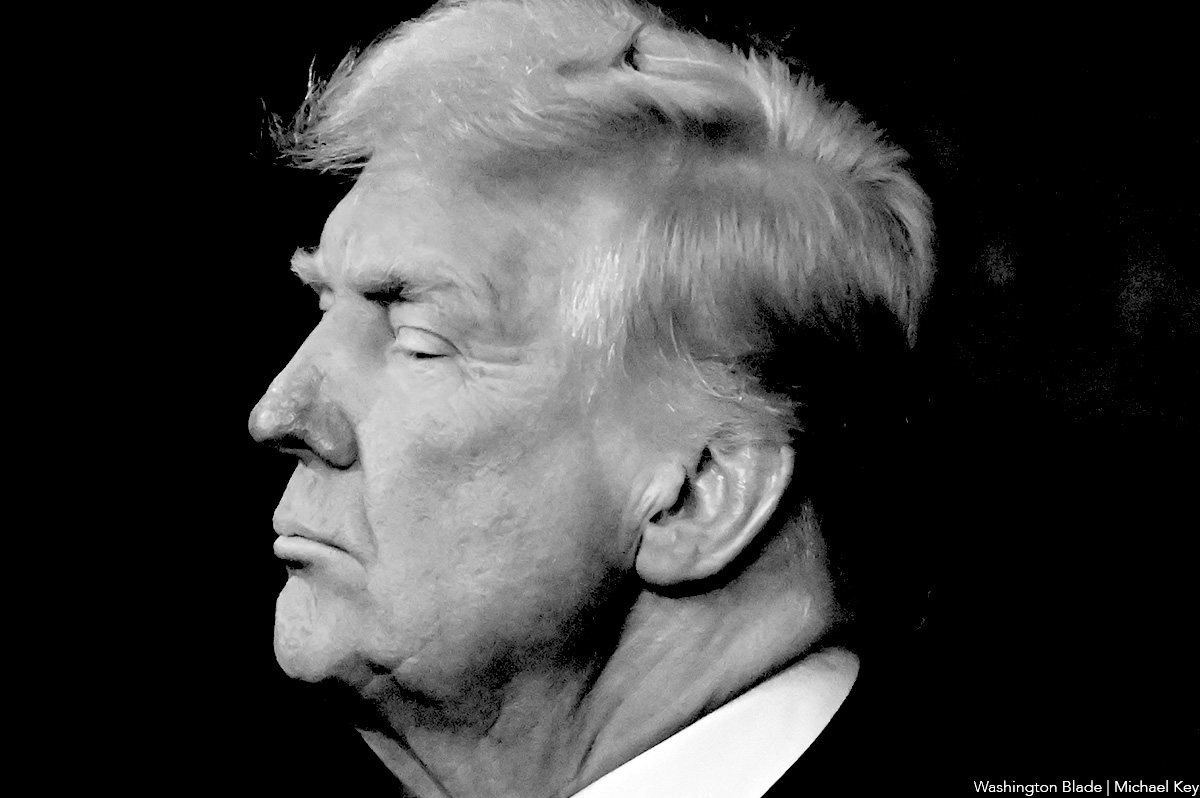
Generally, when someone says, “The internet is forever,” it is not a positive statement.
But for Shae Gardner, policy director at LGBT Tech, it has become a lifeline as she and her team have spent the last couple of months tracking down documents removed from government websites.
After a series of anti-DEI and LGBTQ executive orders, thousands of pages across the federal government have been removed or altered—with LGBTQ topics taking a big hit.
The LGBTQ+ Archive, launched by LGBT Tech last month, aims to restore lost resources about the LGBTQ community into a centralized hub. They have tracked down approximately 1,000 documents—all available as downloadable PDFs and sorted by agency—but know that more are missing. Users can submit missing documents or requests for missing documents.
Archived resources range from the 2023 Equity Action Plans mandated under Biden to HIV resource sheets.
Sid Gazula, LGBT Tech’s Google Policy Fellow said reviewing the documents scrubbed from the Department of Health and Human Services was striking. “You have these important documents related to people’s health. Health isn’t subjective,” he said, “The fact that an executive order could take away all this information was very eye-opening.”
For Gazula it made an already urgent project more urgent. “We, as a community, need access to these resources,” he said, “The archive presents a mechanism to get that access out there.”
The LGBT community has a long history of engaging in archival work, explained K.J. Rawson, professor at Northeastern University and director of the Digital Transgender Archive, in an email. He described archives as “key avenues for preserving and making accessible queer and trans history.”
Since mainstream archives often erase or misrepresent the LGBTQ community, Rawson pointed out that LGBTQ archives “fight against this trend and wrest control back into LGBTQ+ hands,” citing Cait McKinney’s phrase “information activism.”
Gardner feels appreciative of the history of LGBTQ preservation, which guided their work: “I want to make it abundantly clear that we are not the first or only organization doing this sort of preservation work.” She also mentions the Internet Archive, a non-profit library of web pages, which was invaluable during their research.
When the Blade asked about the LGBT Archive, Rawson described it as “crucial!” He elaborated that, “the overt erasure of LGBTQ+ people––but especially trans people––from federal websites has been a hostile move that’s one part of larger efforts to strip us of our humanity and our history.”
Beyond creating a record for the future, the archive is also useful in fighting for LGBTQ representation today. Gardner explained that numerous journalists and advocacy groups have already been using it. Gazula, who is a student, shared that some of their professors said it was an important resource for academic work.
To access it, users have to create an account. Gardner said this is not for marketing. Instead, they want to “put a stop gap between us and malicious actors and attacks on the site” and have a basic understanding of who is using the site. She assures users that the data is backed up on servers globally, but encourages folks to download freely from the archive.
“We decided that we wanted every document and resource on it to be a PDF that they would be able to save it themselves,” said Gardner, “This is not only meant to be very user-friendly, but is also meant to help with those resources being dispersed and being kept.”
“It is the history of our community,” Gardner continued, “we deserve to have continued access to it.”
Colombia
Claudia López running for president of Colombia
Former Bogotá mayor married to Sen. Angélica Lozano
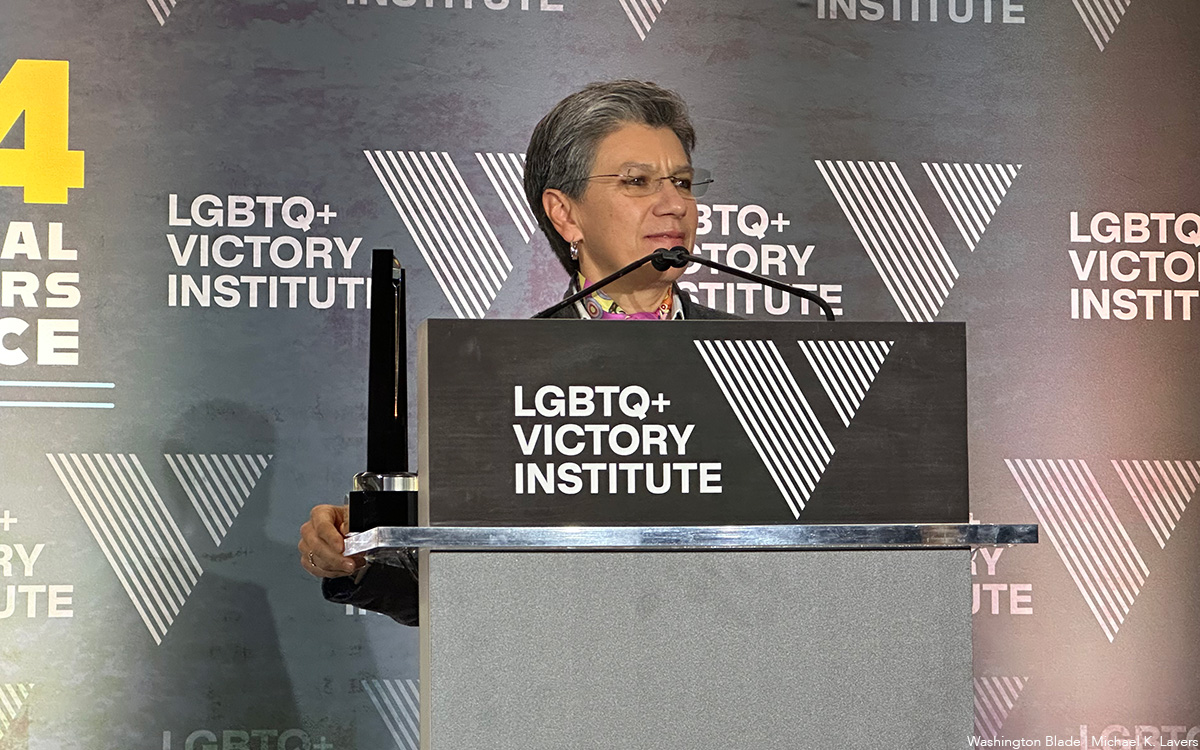
Former Bogotá Mayor Claudia López has announced she is running for president of Colombia.
“We begin today and we will win in a year,” she said in a social media post on June 3.
View this post on Instagram
López, 55, was a student protest movement leader, journalist, and political scientist before she entered politics. López returned to Colombia in 2013 after she earned her PhD in political science at Columbia University.
López in a speech she gave last December after the LGBTQ+ Victory Institute honored her at its annual International LGBTQ Leaders Conference in D.C. noted Juan Francisco “Kiko” Gomez, a former governor of La Guajíra, a department in northern Colombia, threatened to assassinate her because she wrote about his ties to criminal gangs.
A Bogotá judge in 2017 convicted Gómez of ordering members of a paramilitary group to kill former Barrancas Mayor Yandra Brito, her husband, and bodyguard and sentenced him to 55 years in prison.
López in 2014 returned to Colombia, and ran for the country’s Senate as a member of the center-left Green Alliance party after she recovered from breast cancer. López won after a 10-week campaign that cost $80,000.
López in 2018 was her party’s candidate to succeed then-President Juan Manuel Santos when he left office. López in 2019 became the first woman and first lesbian elected mayor of Bogotá, the Colombian capital and the country’s largest city.
López took office on Jan. 1, 2020, less than a month after she married her wife, Colombian Sen. Angélica Lozano. (López was not out when she was elected to the Senate.) López’s mayorship ended on Dec. 31, 2023. She was a 2024 Harvard University Advance Leadership Initiative fellow.
The first-round of Colombia’s presidential election will take place on May 31, 2026.
The country’s 1991 constitution prevents current President Gustavo Petro from seeking re-election.
López declared her candidacy four days before a gunman shot Sen. Miguel Uribe, a member of the opposition Democratic Center party who is seen as a probable presidential candidate, in the head during a rally in Bogotá’s Fontibón neighborhood.
She quickly condemned the shooting. López during an interview with the Washington Blade after the Victory Institute honored her called for an end to polarization in Colombia.
“We need to listen to each other again, we need to have a coffee with each other again, we need to touch each other’s skin,” she said.
López would be Colombia’s first female president if she wins. López would also become the third openly lesbian woman elected head of government — Jóhanna Sigurðardóttir was Iceland’s prime minister from 2009-2013 and Ana Brnabić was Serbia’s prime minister from 2017-2024.

